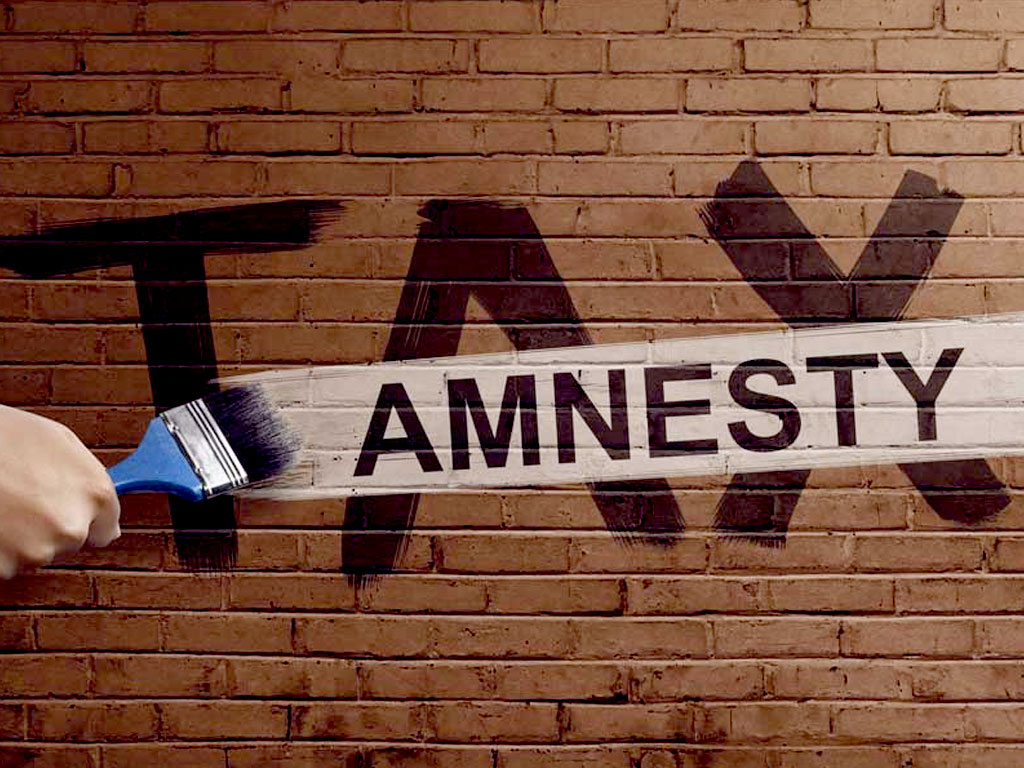Amnesty scheme

Federal Finance Minister Asad Umer in an interactive session with economic reporters arranged by his office announced that yet another tax amnesty scheme was under consideration to in his words "allow public office holders, including politicians and bureaucrats," to avail the scheme. While the identification of these two beneficiary groups of the scheme in particular may raise the hackles of the general public subjected to rising inflation and lower public sector development spending it also raises serious questions about the credibility of Khan administration's rhetorical commitment to a 'new' Pakistan as Umer's statement appears to be propounding the same policies as previous administrations' that benefited politically exposed persons. Be that as it may, before passing judgment it is critical to wait for the actual amnesty scheme policy to be announced as it may very well succeed where others failed.
This newspaper has always supported the Indonesia's tax amnesty scheme model launched on 18 July 2016 which led to at least 897,000 taxpayers declaring more than 358 billion dollar assets. Details of the amnesty scheme were as follows: (i) declaration of wealth stashed abroad envisaged a rate of 4 percent tax while declaration followed by repatriation would be taxed at only 2 percent; (ii) the longer the wait to avail the amnesty scheme the higher the tax rates; (iii) subsequent to the end of the scheme 31 March 2017 penalties would be extremely tough; (iv) only local currency repatriated denominated funds could be repatriated (foreign stocks, mutual funds, property etc. would need to be sold first if the taxpayer wanted to repatriate these assets); (v) specific instruments were on offer in the event that assets were moved back to Indonesia including government bonds, state-owned enterprises bonds, corporate bonds, time deposits and savings at designated lenders (massive state controlled banks), mutual funds, collective investment contracts and real estate investment trust. Around 18 financial institutions, 18 investment managers and 19 stockbrokers were allowed to handle the repatriations.
It may be recalled that the tax amnesty scheme launched by the Shahid Khaqan Abbasi-led government had many of the features of the Indonesian model particularly with respect to rates payable for declaration (one percent higher than Indonesia's 4 percent) and repatriation (same as the Indonesian model). In the case of repatriation of assets the offer was to remit the money through the State Bank of Pakistan in return for issuance of bonds with a maturity of five years and profit of 3 percent to be paid semi-annually. A new scheme should consider extending the instruments on offer in the event that assets are moved back to Pakistan.
By end July last year when the extension ended nearly 55,225 filed returns declaring 577 billion rupees (less than 5 billion dollars) with total taxes paid of about 97 billion rupees. Given our large informal sector the scheme included undeclared assets held in Pakistan and those held abroad.
Supporters of the Abbasi amnesty scheme complained that the lack of success was attributable not to the scheme itself but to statements made by senior leadership of the Pakistan Tehrik-i-Insaaf with Imran Khan rejecting the scheme by stating "first they steal money then introduce tax amnesty schemes."
Amnesty schemes have not worked in Pakistan mainly because, as repeatedly stated in IMF reports on Pakistan, the perception of another amnesty scheme round the corner was always high and given the four amnesty schemes during the PML-N administration and the likely prospect of another one in the very first year of the PTI government may not change that perception.
The reasons for considering yet another amnesty scheme lie in the unsustainable budget deficit for the current year that could well rise to over 7 percent of GDP by the end of the fiscal year. A successful amnesty scheme must have the capacity to generate up to at least 100 billion dollars in whatever instruments are on offer for repatriation, with at least a million or more people/association of persons coming into the tax net, and collection of a significant amount of tax from the scheme (up to 300 to 400 billion rupees at least). These numbers would go some way in reducing the budget deficit.
Pakistan is currently negotiating an IMF bailout package and the IMF and other multilaterals including the World Bank oppose amnesty schemes that, they claim, benefit the rich, who have poor tax compliance records, that in turn hampers poverty reduction efforts of the government and sustain inequality. These are concerns that were cited by Imran Khan and Asad Umer before the PTI formed the government at the centre. It is unclear whether Umer has passed this latest proposal by the IMF team but if he has not he may find it a challenge to convince the mission that the country would be better off with this one last scheme.
To conclude, irrespective of the success or otherwise of the amnesty scheme Asad Umer must keep his eyes on the basic objective of an amnesty scheme: to reform the tax structure and proactively go after those who continue to evade or avoid taxes.

























Comments
Comments are closed.